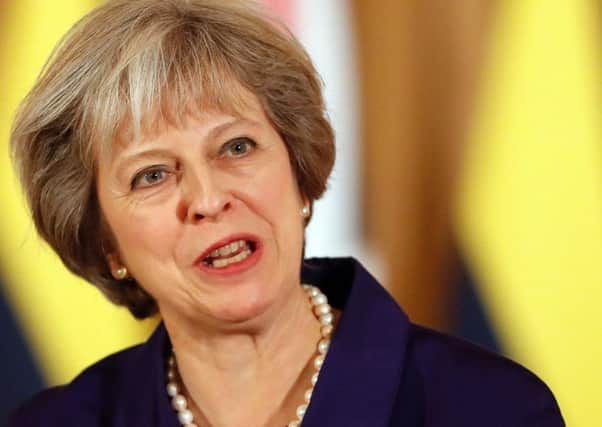YP Comment: Is this the death of democracy? - Likelihood of an early election


There’s every likelihood that the Prime Minister will have to reconsider this if her Government’s attempts to implement Brexit continue to be thwarted by the courts and the majority of MPs who believe their support for the European Union should take precedence over the 17.4 million people who endorsed the UK’s exit from the EU.
Mrs May has, so far, provided the statesmanship that Britain required following David Cameron’s resignation and the political turbulence that followed. Despite being a reluctant Remainer during the referendum, the Prime Minister is committed to upholding the will of the people and is determined to trigger Article 50, the process that begins the two-year Brexit, before next March, at a time most advantageous to the UK.
Advertisement
Hide AdAdvertisement
Hide AdOf course, the Government must consult widely – and it is also the duty of MPs to ask challenging questions of Ministers. But, unlike Mr Cameron who asked for very little and received even less in his renegotiation, Mrs May appears to be a more shrewd operator and reserves the right not to provide a running commentary on every twist and turn of this process.
However it is up to politicians of all parties to accept that the country did vote to leave on June 23 and those MPs in denial about the public’s verdict are doing a disservice to the democratic process. If they do not allow the May government to implement Brexit within reason, the Prime Minister will have no option other than to trigger the dissolution of Parliament and seek a mandate of her own in a General Election. With every passing day, this option looks more and more plausible.
Numbers game - cutting the cycle of reoffending
IN fairness to Justice Secretary Liz Truss, the shortage of prison officers – and its consequences – was becoming apparent before her unexpected promotion when Theresa May came to power. By announcing plans to hire an extra 2,500 officers to counter a rising tide of violence in Her Majesty’s prisons, Ms Truss is effectively saying that the staffing cuts presided over by her predecessors Kenneth Clarke and Michael Gove were erroneous.
However this is not just a numbers game. It is about punishment and rehabilitation, and it is significant that the Justice Secretary wishes to empower prison governors and give them more freedom to implement policies that best suit their regimes. She’s right to do so. Unless the cycle of reoffending is stopped, the same ‘hard core’ of criminals will remain responsible for around 90 per cent of offences that are committed in this country and which cost the economy an estimated £15bn a year.
Advertisement
Hide AdAdvertisement
Hide AdOf course reform requires the Government to accelerate the modernisation of those Victorian prisons which are not fit for purpose, but there needs to be a far greater emphasis on making sure inmates learn life skills, like literacy, that might enhance their employability when they are released back into civil society.
The problem we have, though, is space is at such a premium that offenders are being released before they have a chance to tackle addictions, like drugs, while improving their education. If this is how prisons, and their effectiveness, are to be judged in future, it is a positive step – provided Ms Truss ensures that the necessary resources are available.
Donald Bell legacy - football’s act of remembrance
TO the discredit of football, and the unseemly war of words between Fifa and FA over whether England and Scotland’s players can wear a poppy during their World Cup qualifier on Armistice Day, one name – Donald Simpson Bell – has not been mentioned.
Born in Harrogate, this teacher was the first professional player to enlist in the Army and his gallantry in July 1916, five days before his death, merited the Victoria Cross; indeed the spot on the Somme where he lost his life is forever known as Bell’s Redoubt.
Advertisement
Hide AdAdvertisement
Hide AdAnd while the Football Association’s decision to stand up to Fifa has been widely applauded, the battle of wills over whether the poppy should adorn the shirt, or armband, of players is of secondary importance to the act of remembrance. Perhaps a history lesson on Donald Bell, and his comrades, will remind today’s footballers, from internationals to those taking part in kickabouts with friends, of their own good fortune.